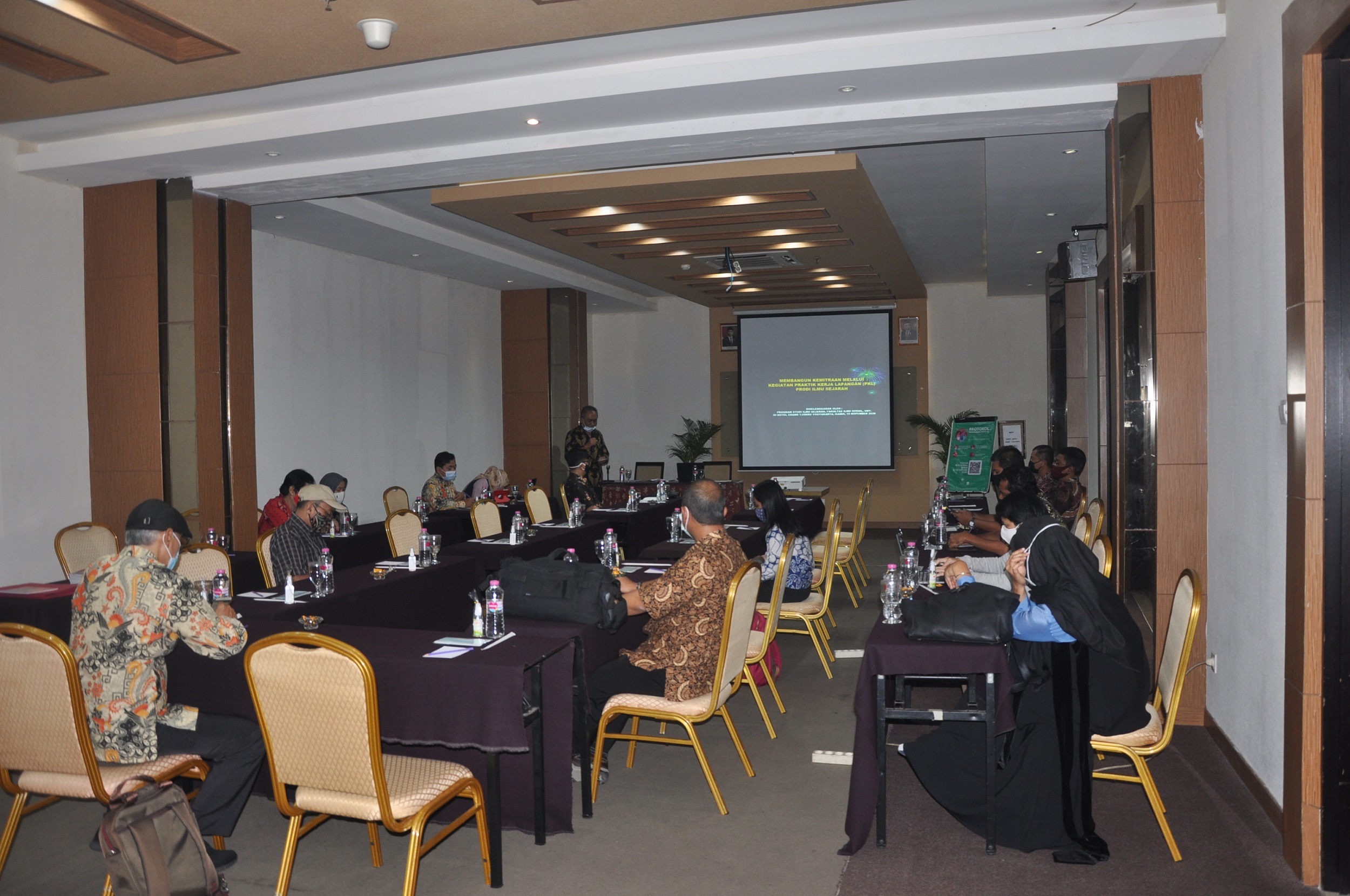You are here
Workshop on Building Partnerships through Field Work Practices for the Historical Sciences Study Program, Faculty of Social Sciences UNY

Praktik Kerja Lapangan (PKL)—Field Work Practices or internships are direct student activities at an institution or foundation within certain period of time. The internship is 6 credits and must pass. The execution time is 272 hours. Students are required to compile a report under the guidance of a lecturer.
Historical Science Study Program held a workshop on Building Partnerships through Field Work Practices at the Grand Rohan Hotel Yogyakarta on Monday, October 25, 2021. There were lecturers of Historical Science Study Program UNY and internship partners, namely: Balai Pelestarian Cagar Budaya DIY, Taman Budaya Yogyakarta, Monumen Yogya Kembali, Dinas Kebudayaan (Kundha Kabudayan) Kabupaten Sleman, Dinas Perpustakaan dan Kearsipan Sleman, Dinas Pariwisata Kota Yogyakarta, Museum Sonobudoyo, Museum Dewantara Kirti Griya, Dinas Kebudayaan Kabupaten Bantul, Dinas Kebudayaan Kabupaten Gunungkidul, Museum Muhammadiyah, Balai Pelestarian Cagar Budaya Jawa Tengah, Dinas Kearsipan dan Perpustakaan Kabupaten Purworejo and Komunitas Kandang Kebo.
The activity was opened by the Coordinator of the Historical Sciences Study Program UNY, Danar Widiyanta, M.Hum, and continued with an explanation of the internship by the internship coordinator for Historical Sciences Study Program UNY, Muhammad Yuanda Zara, Ph.D. The internship coordinator conveys information related to the meaning and position of the internship, the mechanism of internship activities, the purpose of implementing the internship, instructions for implementing the internship (for interns, supervisors in study program, and supervisors at the internship), and sanctions for students who do not comply with the provisions for implementing the internship.
In the next session, a question and answer session was held. In this session, the internship partners asked various questions about internship activities. The difficulty of carrying out internships directly in the field in the midst of the pandemic era is a common problem faced by students and internship partners. Based on the experiences of students and internship partners, adjustments are needed so that internships could still be carried out while following government rules and recommendations regarding preventing the spread of Covid-19. One way is to combine offline and online internships. The internship partners also expressed their appreciation for the contribution of students who had internships at their respective institutions. Various constructive inputs were also put forward by the apprentice partners to improve the implementation of the internship in the future.
Contact
Bachelor of History, Faculty of Social Sciences, Universitas Negeri Yogyakarta
Address: Jl. Colombo Yogyakarta No. 1
Email: ilmusejarah@uny.ac.id
Telp: 0274-548202
Fax: 0274-548201
Copyright © 2025,
